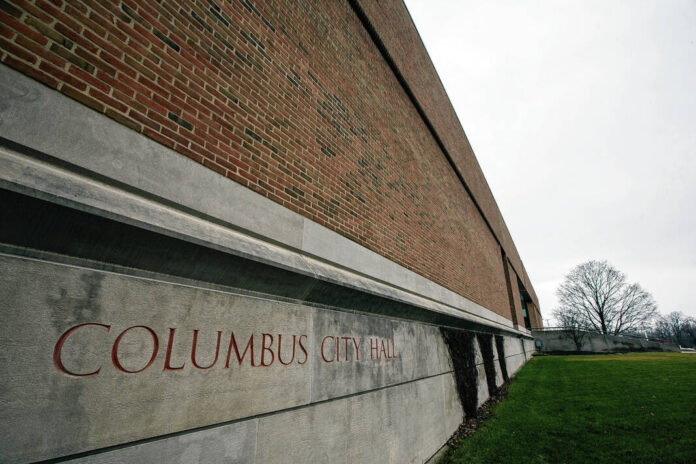The city of Columbus is looking at a preliminary budget of nearly $89 million for 2023, though there are likely to be adjustments before Columbus City Council votes on the final document later this fall.
Council members took part in preliminary budget discussions on Aug. 24 and 25. At that time, the city’s proposed budget for 2023 was $88,990,496. The 2022 budget, by comparison, was a little under $84.5 million.
“There will be tweaks, most likely, between now and when you see this budget again in October,” Director of Finance, Operations and Risk Jamie Brinegar told city council. “We have a couple of things we’re still looking at.”
Brinegar said the city won’t have a proposed tax rate until the budget is finished. However, he said they hope to stay close to the 2022 rate, which is $1.1199 per $100 of assessed valuation.
One element of the city’s 2023 budget that is unlikely to come as a surprise is that departments are setting aside more for fuel next year. The Columbus Fire Department budgeted $17,000 for gasoline and $37,400 for diesel in 2022. CFD’s proposed budget for 2023, on the other hand, includes $27,000 for gas and $72,400 for diesel.
Additionally, the city’s overall budget for 2023 includes a 6% increase for civilian salaries and a 7.9% increase for sworn positions. Brinegar said this related to the results of a recent salary study.
The human resources department has been working on employee recruitment and retention. As a result, the city is considering changing its Faithful Service Pay policy for civilian employees, though this isn’t included in the budget yet.
“Police and fire have longevity pay that’s calculated every year as part of their salary,” said Brinegar. “For our civilian employees, currently they do not see a Faithful Service Pay until year 20. … We’ve looked at many communities across the state, and most of them do a five-year, 10-year, 15- and 20-year step up Faithful Service Pay. We will be bringing that forward to you in the next few weeks, again, as we iron out what those dollar amounts would be.”
Currently, civilian employees receive a one-time payments on the 20th, 25th and 30th anniversaries of their employment with the city.
In addition to pay changes, Brinegar said the 2023 budget also includes some new positions, such as a second code enforcement officer, a People Trail maintenance laborer, a grant administrator and a city controller.
Officials have only budgeted the controller position for a quarter of the year, with $31,250 set aside for this purpose. This new role is part of the city’s change to “second class” status, which officially goes into effect in 2024 and entails a number of changes to Columbus’ city structure.
Indiana Code specifies that while third class cities, such as Columbus, elect a clerk-treasurer, second class cities elect a clerk. Both positions fill the role of city clerk; however, the clerk-treasurer also serves as the city’s fiscal officer. In a second class city, the fiscal officer is a city controller appointed by the mayor.
The 2023 budget also includes a section for American Rescue Plan funds, with $1.5 million budgeted for 2023. According to Brinegar, this includes $250,000 for grant expenditures, $250,000 for capital needs for the Department of Public Works and $1 million in capital projects for the Columbus Parks and Recreation Department.
The grant expenditures line is related to the city’s partnership with Meridiam Infrastructure North American Corp., which has agreed to create a fiber-to-home network that officials say will reach at least 85% of Columbus.
Meridiam officials have said in the past that once the network is complete and service is available, eligible low-income residents will be able to use the Affordable Connectivity Program to receive internet access for free.
“What we would like to be able to do is to then assist with the connection from the fiber to the home,” said Brinegar. “And this grant money there will take care of that, is our plan. And that way, for lower-income folks, they can then have that connection at no cost, with a monthly cost that’s covered by the federal government.”
Additionally, Columbus City Council recently approved a tax abatement for Hoosier Networks LLC, which is owned by Meridiam. The abatement will save the company 95% on personal property taxes every year for 20 years on $28 million in new equipment for the project.





